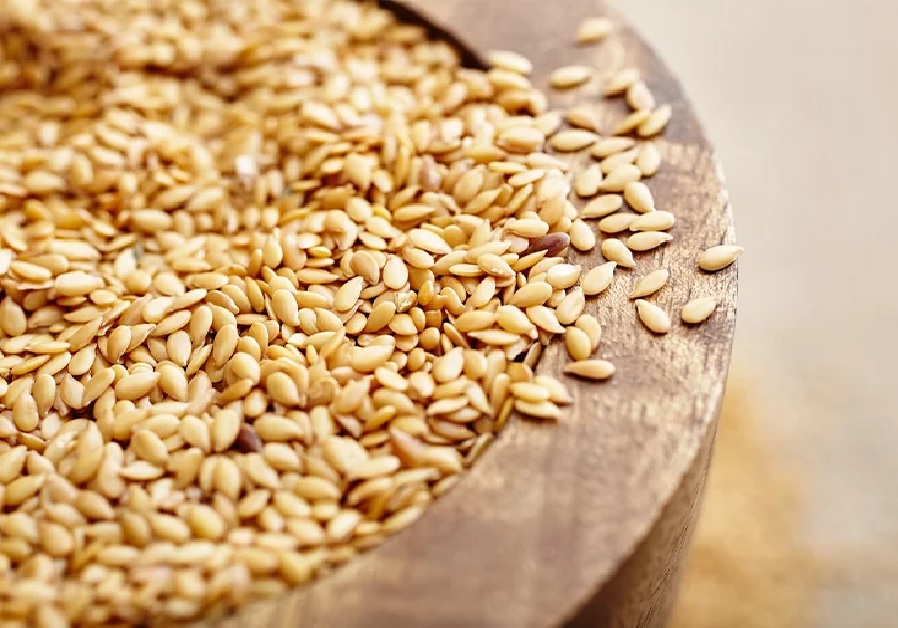Why Flax seeds are healthy?
Flax seeds are small, golden or brown-colored seeds that come from the flax plant. The flax plant is a tall, slender annual plant that grows to a height of about 2–4 feet. It has blue flowers and thin, glossy leaves. The seeds are contained in small pods that form on the plant after the flowers have bloomed. To harvest the pods are allowed to dry on the plant, and then the seeds are removed from the pods by hand or by machine.
The seeds can then be used whole, ground into a meal, or pressed to extract the oil. Theys are a rich source of nutrients, including omega-3 fatty acids, fiber, and antioxidants. They are commonly used as a health food and are often added to bread, cereals, and other baked goods.
Benefits of Flax Seeds for Humans
Flax seeds are a good source of several nutrients and have a number of potential health benefits. Here are a few examples:
- It are high in fiber, which can help improve digestion and reduce the risk of constipation.
- They are a good source of omega-3 fatty acids, which may help reduce inflammation and lower the risk of heart disease.
- They are also a good source of lignans, which are plant compounds that have been shown to have antioxidant and estrogen-like effects. Some research suggests that lignans may help reduce the risk of breast cancer and other hormone-sensitive cancers.
- The seeds are high in antioxidants, which can help protect cells from damage caused by free radicals.
- They are also a good source of plant-based protein, which can be helpful for people following a vegetarian or vegan diet.
Some potential benefits of consuming flax seeds include
- Heart health: The seeds are high in alpha-linolenic acid (ALA), a type of omega-3 fatty acid that has been shown to help lower blood pressure and decrease the risk of heart disease.
- Digestive health: They are high in both soluble and insoluble fiber, which can help improve bowel function and reduce the risk of constipation.
- Cancer prevention: Some studies have suggested that the lignans (a type of plant compound) found in these seeds may have anti-cancer properties and may help to reduce the risk of certain types of cancer, such as breast and prostate cancer.
- Weight management: As they are high in fiber, they may help to reduce appetite and promote weight loss.
Potential drawbacks to consuming flax seeds
Allergic reactions: Some people may be allergic to these seeds and may experience symptoms such as itching, swelling, and difficulty breathing after consuming them.
Interactions with medications: The seeds may interact with certain medications, such as blood thinners, and may interfere with their effectiveness. It is important to speak with a healthcare provider before adding flax seeds to your diet if you are taking any medications.
Oxidation: They contain polyunsaturated fats, which are prone to oxidation (the process by which fats become rancid). It is important to store flax seeds in an airtight container in the refrigerator to prevent them from becoming rancid. Ground flax seeds should be used within a few days of grinding, as they are more prone to oxidation than whole flax seeds.
Countries producing Flax Seeds
Flax seeds are grown in many countries around the world, including the United States, Canada, Russia, and several European countries. India is also a major producer of flax seeds. In fact, India is one of the largest producers of these seeds in the world, along with China and Canada.
They are grown mainly in the northern and western regions of India, including the states of Punjab, Haryana, and Rajasthan. They are an important crop in India, both for domestic consumption and for export to other countries. In addition to being used as a health food, the seeds are also used in the production of linseed oil, which is used in a variety of industrial and consumer products.
Do Doctors recommend Flax Seeds?
Yes, it is not uncommon for doctors to recommend that patients include flax seeds in their diet. They are a rich source of nutrients, including omega-3 fatty acids, fiber, and antioxidants, and have been shown to have a number of health benefits. For example, these seeds may help to lower blood pressure and reduce the risk of heart disease, improve bowel function and reduce the risk of constipation, and potentially reduce the risk of certain types of cancer.
Additionally, it may help to manage weight, as they are high in fiber and may help to reduce appetite. However, it is important to speak with a healthcare provider before adding the seeds to your diet, as they may interact with certain medications and may not be suitable for everyone.
Who all should have Flax Seeds?
Flax seeds are a good source of many essential nutrients, and as such, they may be beneficial for a wide variety of people. They are particularly high in omega-3 fatty acids, which are important for heart health, brain function, and overall well-being. They are also rich in antioxidants, lignans, and fiber.

People who may benefit from incorporating flax seeds are
- Individuals with high cholesterol or heart disease, as the omega-3s in flax seeds may help lower cholesterol and blood pressure levels.
- People with inflammatory conditions such as rheumatoid arthritis, as the omega-3s in the seeds may help reduce inflammation.
- Vegetarians and vegans, as the seeds are a good plant-based source of omega-3s.
- People with constipation, as the high fiber content of the seeds may help promote regular bowel movements.
- Women, as the lignans in these seeds may help reduce the risk of breast cancer.
It’s worth noting that the seeds are best consumed ground, as the whole seeds pass through the gut undigested. So the benefits come from when they are ground.
It is always a good idea to consult with a healthcare professional before making any major changes to your diet, especially if you have a health condition or are taking any medications.















































